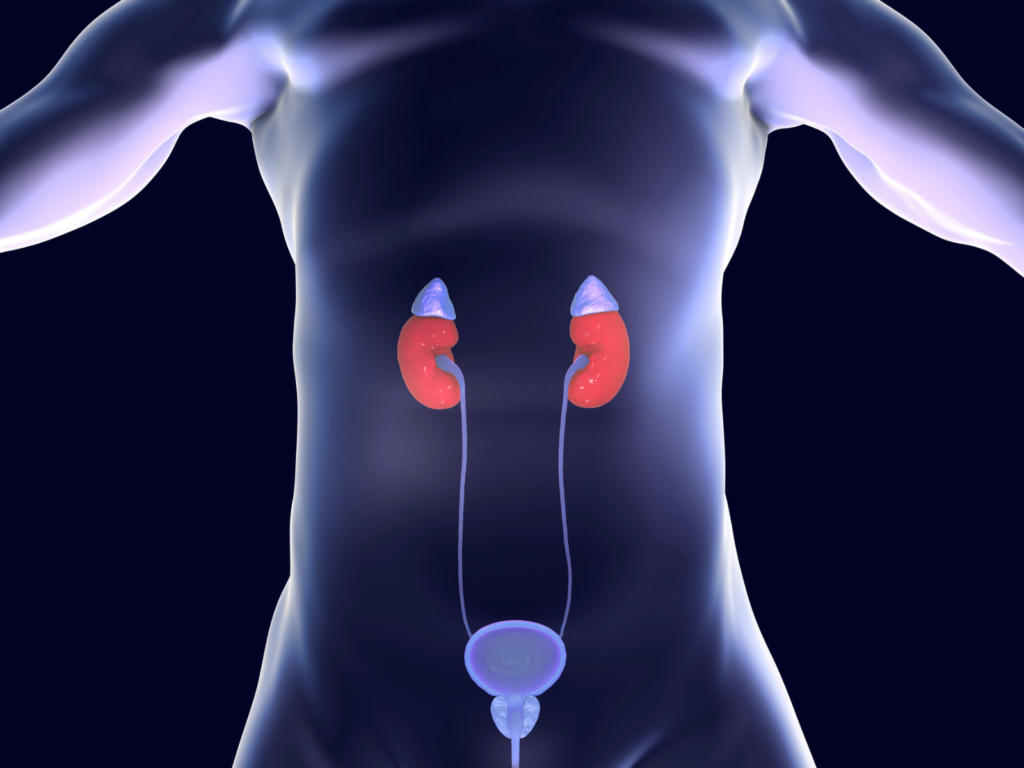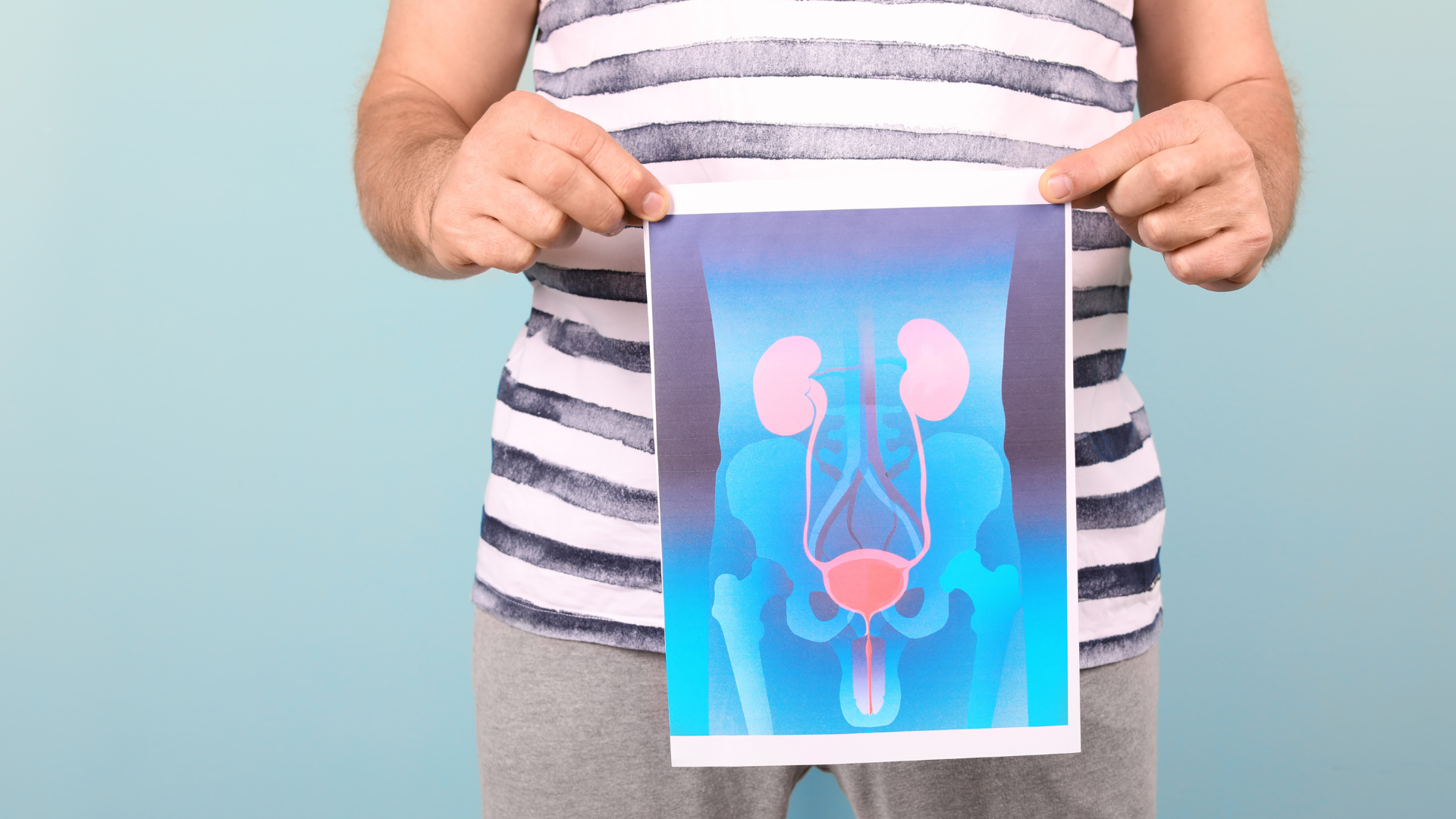Prostate surgery can impact more than just anatomy.
A recent study led by Dr. Etienne Bouchet and colleagues “What Happens to Orgasmic Function After Surgical Benign Prostate Hypertrophy (BPH) Treatment?”, explores the effects of benign prostatic hyperplasia (BPH) surgery on orgasmic function.
Published in the French Journal of Urology in 2024, this research delves into the realm of sexual dysfunction post-BPH surgery, focusing on changes in orgasmic sensation independent of ejaculation.
It’s an intersection of urology and sexual wellness; uncovering the hidden impacts of this prostate surgery on men and prostate owners’ lives.
Why Have Benign Prostatic Hyperplasia Surgery?
People with a prostate may require surgery for Benign Prostatic Hyperplasia (BPH) – enlargement of the prostate gland – due to the significant impact this condition can have on their quality of life, particularly regarding urinary and sexual functions.
“The increasing number of subjects with benign prostration obstruction (BPO) has become a worldwide concern.”
This is increasing the prevalence and need for effective treatments. Surgery, such as laser vaporization or transurethral resection of the prostate, is considered when other treatments have not provided sufficient relief or when the condition leads to more complications, including severe urinary retention, bladder stones, or kidney damage.
The decision for prostate surgery is often based on the severity of symptoms, including “lower urinary tract symptoms” which affect “about 40% of men over 50 and can [impact] 80% of men over 70.”
These symptoms include:
- Frequent urination
- Nocturia: Needing to urinate more often during the night
- Difficulty starting urination
- Weak urine stream
- Inability to empty the bladder

The surgical intervention aims to alleviate these symptoms by removing or reducing the part of the prostate that is blocking urine flow.
Furthermore, the study addresses concerns beyond urinary symptoms, specifically the impact of BPH surgery on orgasmic function, stating that “the sexual problem after benign prostate enlargement (BPE) surgery that has received the most attention in the literature is ejaculation disorder. However, there appears to be a change in orgasmic sensations independent of ejaculation retention.”
The careful consideration of surgical options and their implications on overall quality of life is crucial for managing BPH effectively.
Methodology
The researchers employed a prospective, multicenter clinical design to explore the effects of BPH surgery on orgasmic function. The study selected 104 sexually active male participants who underwent BPH surgery between January 2016 and November 2020. These participants were chosen based on their maintained sexual activity post-surgery, providing a focused demographic profile aged 50 to 80.

The research utilized a comprehensive approach to data collection, leveraging both qualitative and quantitative measures, including validated questionnaires like the International Index of Erectile Function 15 (IIEF15) and the Male Sexual Health Questionnaire for Ejaculatory Dysfunction. Alongside the use of physical assessments such as prostate volume and maximum flow rate measured via suprapubic ultrasound.
This allowed for a detailed exploration of the nuanced changes in orgasmic function and its correlation with surgical outcomes.
Findings
Their research is quite revealing, illustrating a diverse range of experiences in postoperative orgasmic function.
No Change: 34%
Reported Improvements: 30%
Deterioration of Orgasmic Function: 36%
Particularly noteworthy is the discovery that a significant decline in orgasmic function was observed among men who, before surgery, reported a high quality of ejaculation and satisfaction with their sexual function. This underscores a crucial insight: individuals with a previously satisfactory sex life may be more susceptible to noticing changes post-surgery.
Overall the study shows that BPH surgery for prostate enlargement can have mixed outcomes on sexual pleasure. Some men feel the same, some feel better, and some feel worse.
Discussing the Takeaways of Prostate Surgery
While a significant portion of patients experience changes in orgasmic function post-surgery, the impact varied widely among individuals. This points toward a complex interplay between sexual health before and after prostate surgery.
The researchers acknowledged the limitations inherent in their study, such as the reliance on self-reported measures like the IIEF15, which might not fully capture the multidimensional nature of the orgasmic function. They also noted the potential bias introduced by the study’s design, including the short follow-up period and the homogenous patient selection, which might limit the generalizability of the findings to broader populations.
Future Research Directions
The research team suggested future research directions, including the need for longer follow-up periods to better understand the long-term effects of BPH surgery on sexual function and the development of more comprehensive tools for assessing orgasmic function.
The study opens avenues for future studies to explore the varied impacts of surgical techniques on sexual satisfaction, thereby enhancing patient care in urology.
Personalized Patient Counseling

A key takeaway from the study is that doctors should talk to their patients about the possible changes in sexual feelings after surgery to help them know what to expect. It’s important to have personalized patient counseling and consider the individual’s pre-surgery sexual health to predict the post-surgery outcomes.
These findings should urge healthcare providers to adopt a more nuanced approach when discussing potential risks with their patients.
Implications and Future Pathways
This study serves as a reminder of the multifaceted nature of patient care, especially in the context of conditions like BPH that predominantly affect an aging population. Future directions suggested by researchers – including the development of comprehensive tools for assessing orgasmic function and the call for longer follow-up periods – point towards an evolving understanding of BPH treatment.
As we advance in our medical practices, the study prompts a thought-provoking question: How can we ensure that our pursuit of alleviating one aspect of health doesn’t inadvertently diminish another, equally important aspect in our lives?
This question invites healthcare providers to further balance technical expertise with compassionate care, ensuring that treatments enhance the overall quality of life for patients, not just the symptomatic relief of a single condition.



